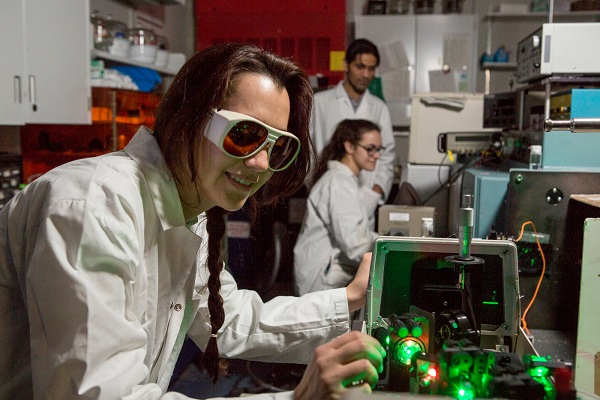Interested in the Sciences? Discover Your Ideal Academic and Career Path
Find out the unique benefits of each scientific discipline

Whether you’re studying inanimate matter, natural phenomena or living organisms, studying in a program in the sciences is rewarding for many reasons. You’ll develop concrete, practical skills and you’ll grow into a valuable specialized candidate within the job market.
Concordia offers 8 departments and 20 undergraduate programs in science-related fields to choose from. Here are some of the most popular science programs to specialize in:
- 1. Matter and organisms: Physics, biology, biochemistry, chemistry
Of all sciences, physics is the most fundamental scientific discipline and forms the building blocks for the other scientific disciplines. Within its Physics department, Concordia University gives you the option to study in one of two streams: physics or biophysics. Career options in physics are numerous.
Biology is a complex field that encompasses the study of so many categories of live matter, which is why many universities, including Concordia, offer several programs within biology to choose from:
- 1. Biology
- 2. Ecology
- 3. Cell and Molecular Biology
Due to the field’s versatility, Biology majors have a rich selection of career paths to pursue.
Chemistry and biochemistry delve into the most miniscule elements in the universe. Classes in a broad range of topics, including nanochemistry or medicinal chemistry, are complimented with hands-on lab sessions.

- 2. Numbers: Mathematics and statistics
Think of math as a universal language that bridges linguistic and cultural differences. By studying math, you’ll deal with theories, problems and applications to answer real-world questions in science and engineering.
Math is incredibly diverse -and so are our program options. You have the choice to focus on one of several branches:
Depending on their specialization, math graduates can work in exciting environments that require a knack for problem-solving, a strength with numbers and advanced analytical skills–all of which a degree in math will equip you with.
- 3. Geography and Environment: Geography, Planning and Environment
With an increasing concern for the well-being of our planet, a professional future in the environmental sciences is promising and much-needed. You’ll have the option to become a geographer, environmental scientist, urban planner and so much more.
Programs in Concordia’s Department of Geography, Planning and Environment promote environmental and spatial awareness and literacy, which means you get to learn technical skills such as digital mapping and how to operate a Geographic Information System (GIS).
- 4. Human health: Health, Kinesiology & Applied Physiology, and Psychology
If your interest is focused primarily on understanding and improving human health, then studying in the following programs may be what you’re looking for.
Body: By opting for a program devoted to the science and therapy of physical movement, you’ll gain knowledge and practical skills needed for things such as injury prevention, emergency services, and rehabilitation.
Brain: Studying psychology involves delving deep into the workings of the human brain and understanding the internal and external factors that influence human behaviour, cognition, perception and motivation.
